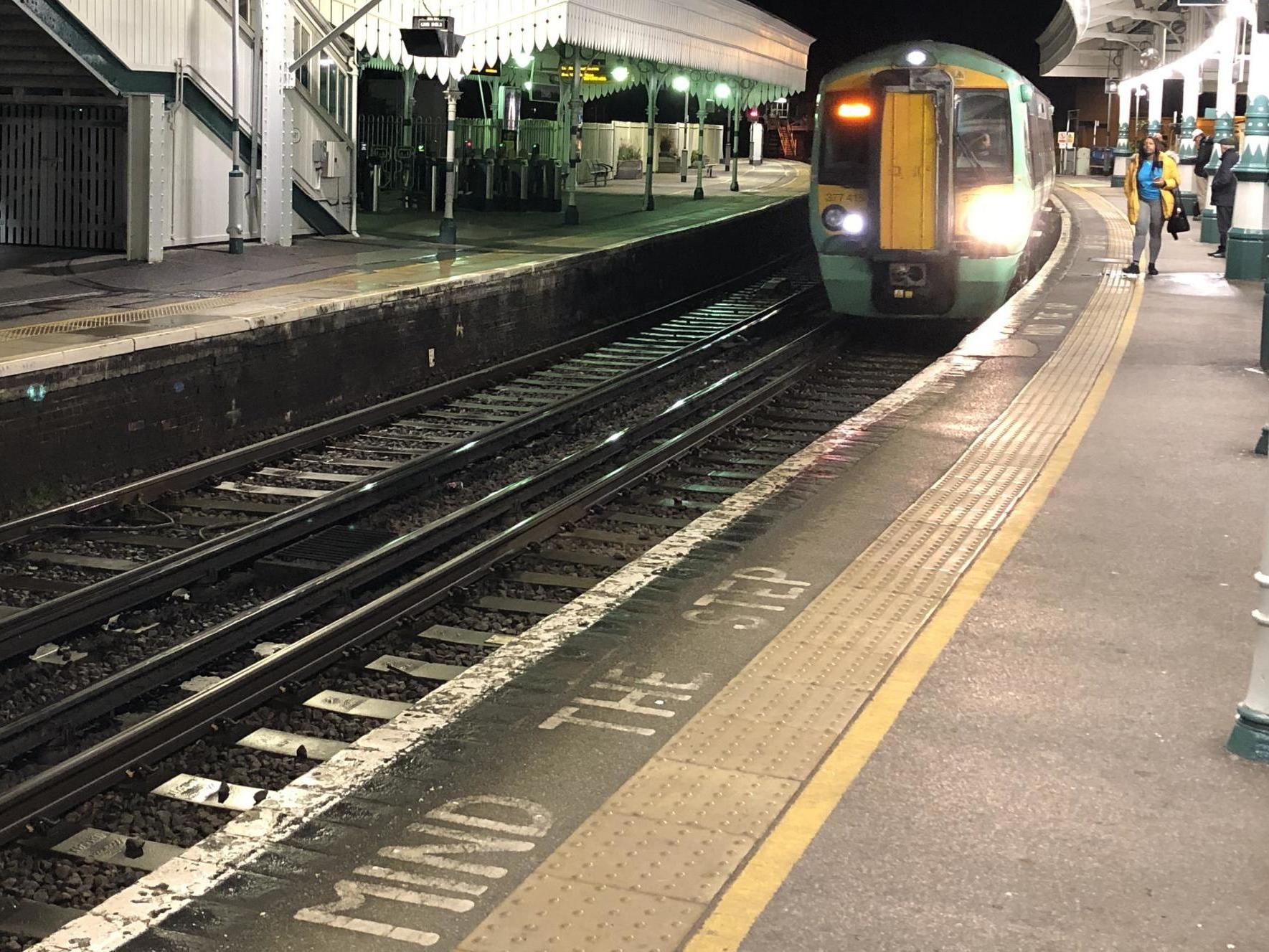Rail chaos: train firms need to make proper payouts when things go wrong
I am no fan of compensation culture. But in this context it just might help

Your support helps us to tell the story
From reproductive rights to climate change to Big Tech, The Independent is on the ground when the story is developing. Whether it's investigating the financials of Elon Musk's pro-Trump PAC or producing our latest documentary, 'The A Word', which shines a light on the American women fighting for reproductive rights, we know how important it is to parse out the facts from the messaging.
At such a critical moment in US history, we need reporters on the ground. Your donation allows us to keep sending journalists to speak to both sides of the story.
The Independent is trusted by Americans across the entire political spectrum. And unlike many other quality news outlets, we choose not to lock Americans out of our reporting and analysis with paywalls. We believe quality journalism should be available to everyone, paid for by those who can afford it.
Your support makes all the difference.On Monday morning I was appalled by two things: the obliteration of the first rush hour of the week at London Waterloo by overrunning Network Rail engineering work, and the shocking abuse that South Western Railway’s social media staff received from online bullies. The frequently maligned train operator was, on this occasion, blameless. Yet frustrated travellers cursed its Twitter team with threats and vile language.
That evening, by the time Southern Rail’s overpacked 5.37pm from London Bridge to Uckfield had given up the ghost and expired just three miles and 40 minutes after departure, I found myself joining in the electronic irritation. Not, I hasten to add, by unleashing expletives on customer service staff, but by texting the friend I was hoping to meet for a drink: “Does Southern really loathe its passengers?”
Travellers who rely on the train operator serving south London, Surrey and Sussex have had a horrible year. So too have commuters using Northern in northwest England, where unworkable timetables were imposed in May and every Saturday is a strike day – the RMT union and the government are fighting a proxy war about driver-only operation on Northern’s patch.
Yet tens of thousands of railway staff work their socks off every day to try to keep the creaking show on the wobbly railroad. And still things go badly wrong.
Train failure is not a once-in-a-blue-moon event. I know that because the one I hoped to catch back from Sussex to London that evening ran out of steam at Eastbourne and had to be replaced.
Eastbourne, of course, is where Karl Marx used to holiday.
Some rail passengers say that, in accordance with the philosopher’s principles of social ownership of the means of production, the railways should be nationalised. But most travellers couldn’t care who runs the trains. They just want to be able to get to work/school/hospital/friends/family on schedule.
As Marx’s devotee Lenin asked (in slightly different context): what is to be done?
That evening I had plenty of time to contemplate the issue on various godforsaken trains and platforms. The solution: take a leaf out of the rulebook for compensating airline passengers.
Handing out £350 to someone whose £50 flight to Malaga is three hours late – as European rules dictate – is absurdly excessive. But it focuses the airlines’ minds on reducing delays and improving resilience. We need to align payouts to passengers with train pain.
I reckon there were about 1,000 passengers on the failed train, all of whom had to jostle across the footbridge at New Cross Gate and try to board an already overstuffed following service, missing multiple connections in the process.
I have already received my “Delay Repay” payment. Britain might have a sometimes-rubbish railway, but it is world class in responding to compensation claims. Only in terms of time, though. Not money.
On a £14 return ticket, I received just £1.80 in compensation. In the olden days when there was a buffet trolley on Southern trains, that would not even buy a cup of tea. If everyone aboard the doomed train claimed the same (which is doubtful), the operator’s penalty for deploying a train that was unfit for purpose was £1,800: a drop in the rail franchising ocean.
Suppose compensation were sharply increased, with a fixed £10 payout for a 30-minute delay when the train operator is at fault, £20 for an hour, etc. Many more travellers would claim. And if the price of failing to maintain properly the rolling stock on the 5.37pm were £10,000 or £20,000, train firms will share our pain and up their game.
The tricky element in this cunning plan: the many delays caused by Network Rail. If every one of the 150,000 or so commuters to London Waterloo whose Monday was wrecked by a defective rail near Surbiton was given just £20, that would total £6m. But rather than a transfer of wealth from shareholders to travellers, it would be the long-suffering taxpayer forced to shovel yet more cash into the bottomless pit of railway funding.
It will take at least another day of disruption to figure out a fair prescription for infrastructure delay, though if you already have the answer, let me know. Meanwhile, let’s start with proper payouts when train operators foul up.
Things will always go wrong on the railways, and I am no fan of “compensation culture”. But in this context it just might help.
Join our commenting forum
Join thought-provoking conversations, follow other Independent readers and see their replies
Comments